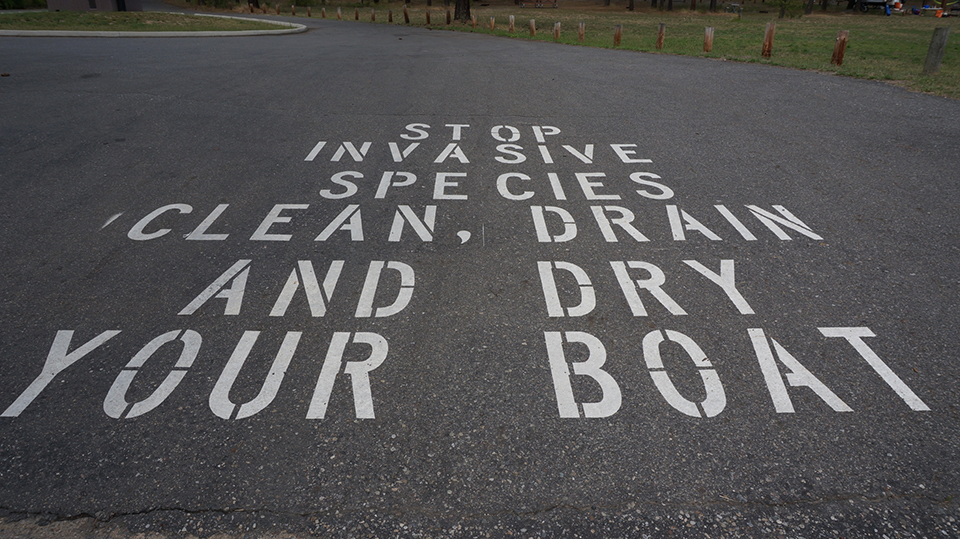News Release
You are viewing ARCHIVED content published online before January 20, 2025.
Please note that this content is NOT UPDATED, and links may not work. For current information,
visit https://www.nps.gov/aboutus/news/index.htm.

|
Subscribe
|
Contact: Denise Bausch, 509-754-7830
Aquatic invasive species are easily transported between bodies of water by boats, inflatable kayaks and float toys, fishing waders and tubes, trailers, and any other water gear. Currently, freshwater lakes in Washington, Oregon and Idaho are free of invasive quagga and zebra mussels. Do your part to help prevent the introduction of quagga and zebra mussels by making sure that you CLEAN, DRAIN and DRY all your water gear before launching at Lake Roosevelt National Recreation Area.In an on-going effort to prevent the introduction of aquatic invasive species, the National Park Service (NPS) at Lake Roosevelt National Recreation Area requires all boaters, including those who have an annual launch pass, to complete the aquatic invasive species (AIS) quagga/zebra mussel-free self-certification form. Because compliance with this requirement has been low, law enforcement rangers will begin ticketing vehicles that are not properly displaying this form this summer. This is the next progression of the AIS prevention program introduced in early 2018.
The bright pink self-certification forms are available at each boat launch or through our website at: https://www.nps.gov/laro/learn/nature/upload/Zebra-and-Quagga-mussel-certification-reduced-508.pdf. After following the flowchart and completing the form, place it in the windshield of your launch vehicle where it can be easily seen.
If you only boat within Washington State, you only need to complete the form once per season. If you launch your boat outside of Washington State, you will need to complete the form before you launch at Lake Roosevelt again. Watercraft coming from outside of Washington should be cleaned, drained, and fully dried (dry time may be up to 30 days) or have valid proof of inspection within the last 30 days, before launching at Lake Roosevelt. It is important to remove all dirt, plants and water from boats, trailers, and other water gear prior to launching every time.
An invasive mussel species native to Ukraine and Russia, quagga/zebra mussels quickly cover most hard surfaces and can clog boat motor intake systems, water intake structures, recreational beaches, agricultural irrigation systems and hydroelectric power plant operations. These small mussels can survive out of the water for up to two weeks and the microscopic larvae can be transported in bilges, ballast water, live wells or other equipment that holds water. Researchers within the Pacific Northwest Economic Region estimate that the economic impact of a mussel infestation would cost the Pacific Northwest $500 million annually.
For more information, check the Lake Roosevelt National Recreation Area website at www.nps.gov/laro.
Last updated: May 11, 2021
